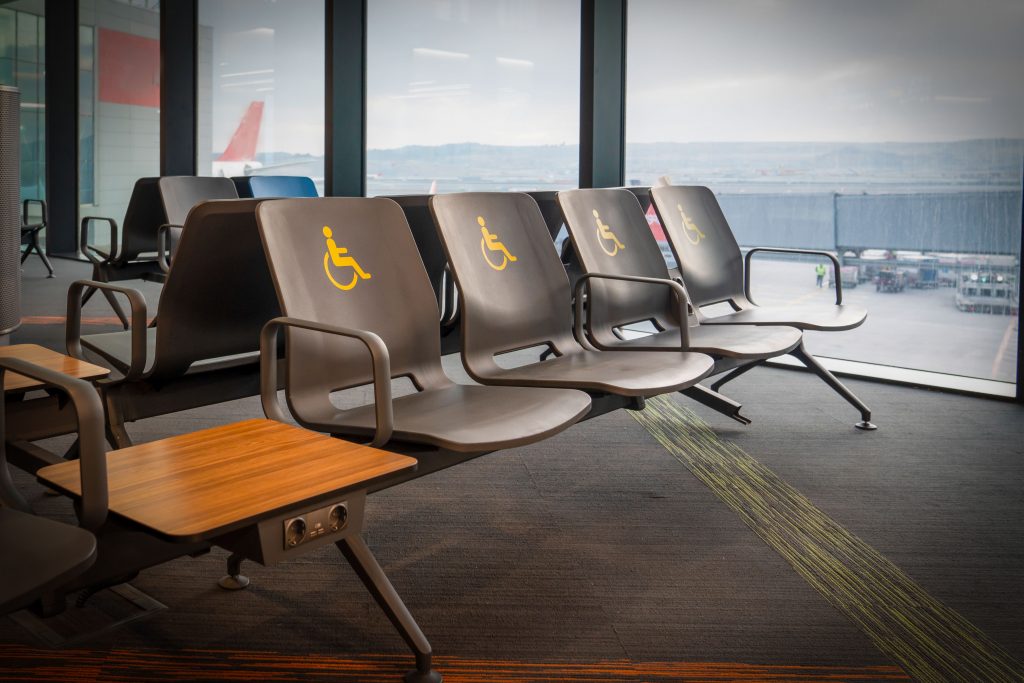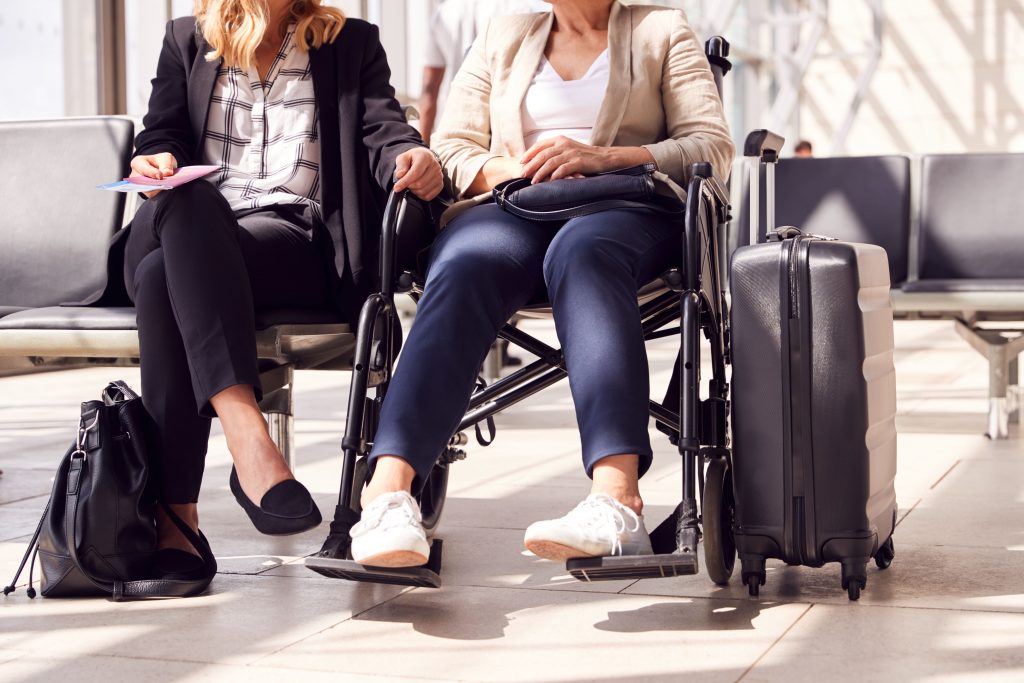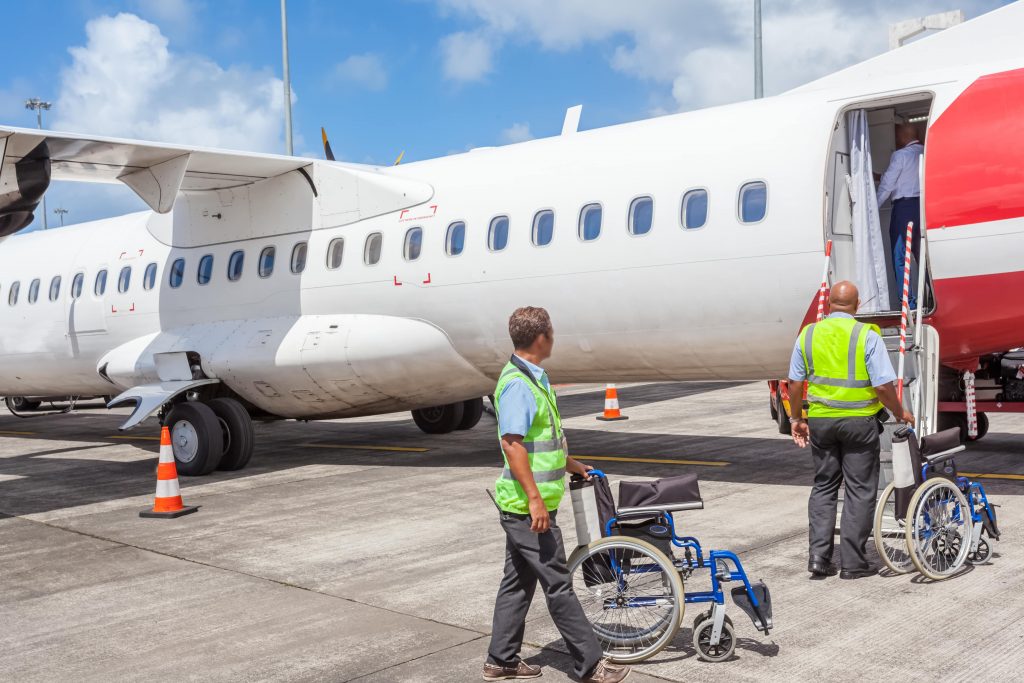Disability help offered by different airlines
Air travel with a disability can be a stressful and daunting process but fortunately, over the past few years, airports and airlines have made great strides to improve the experience for disabled passengers, with awareness, service and facilities all taking a significant upturn.
London Gatwick Airport, for example, developed the sunflower lanyard scheme for people with hidden disabilities who may want some extra assistance while checking-in, making their way through security, enjoying the restaurant and shopping facilities, or boarding the plane. This has since been rolled out to a whole host of other airports, supermarkets and further afield.
But what of the airlines themselves? When booking flights or even choosing a holiday destination, it’s important to know what services and facilities are available with various carriers to ensure your travel experience is as relaxed as possible. With air travel restrictions lifted and people starting to holiday once again, we’ve put together the following guide to help share the breadth of services offered by different airlines.
It’s worth noting that most airlines will need at least 48 hours’ notice should you require any special assistance for your flight.
At the airport
It’s best to contact both your airline and the airport itself if you require special assistance. Airports will have their own teams on-hand to provide support, but some airlines will also be able to offer you help before you reach the aircraft. Qantas, for example, provides excellent service to disabled passengers, with a meet-and-greet service from the moment you reach the airport.

at the airport as comfortable as possible.
Priority Boarding
Most airlines will offer priority boarding to passengers who have requested special assistance, allowing you to board the plane first and get settled in your seat.
On-board
British Airways are one of many airlines whose cabin crew will assist you with storing and retrieving hand luggage from the overhead lockers, help you move between your seat and the toilet, and help open any packaging of onboard meals, as well as helping identify the food itself and the layout on the tray.
Both passengers with hearing and visual impairments are catered for when it comes to safety announcements, with airlines offering braille options and captioned videos. EasyJet provides safety instructions separately for visually impaired and hearing-impaired passengers.
For passengers with hearing problems, Emirates’ onboard headphones are compatible with standard hearing aids.
Etihad Airways offers an onboard nurse service, who is on-hand to assist with medical forms and documentation, boarding and medical needs during the flight.
Qantas, meanwhile, offers to lift passengers in and out of their seat and, if you require a carer, they will allow both of you to travel at a discounted rate.

Qantas is the airline for you!
Washrooms
Washrooms on planes can be tight spaces at the best of times and so it is worth bearing in mind that most airlines won’t be able to offer any help inside the washroom itself. Some long-haul aircraft, such as Air France’s fleet, are specially adapted with wider access doors to the washrooms, enabling wheelchairs in and out.
Many long-haul airlines, such as Emirates and Etihad, offer cabin chairs – designed to fit along the aisle – to transport passengers from their seat to the toilet when necessary.
Wheelchairs
In terms of taking wheelchairs on-board a plane, the rules and availability will not only vary airline to airline, but also within their own fleet of aircraft. Iberia, for example, has closet space on some flights for wheelchairs to be stored on-board, but other aircraft will require wheelchairs to be placed in the hold, which is fairly common practice.

it comes to putting wheelchairs on aeroplanes.
Make sure you do your research before booking your flight.
Service Animals
Rules around service animals vary between airlines. Due to the United Arab Emirates’ Federal Government regulations, only guide dogs for the blind are permitted in the cabin of Emirates aircraft, while all other service dogs must enter the UAE as manifested cargo.
On EasyJet, service animals are only permitted on domestic flights.
Virgin Atlantic accepts service dogs in the cabins on many routes, including London Heathrow, London Gatwick, JFK, San Francisco and Dubai (plus others), providing they have all the necessary vaccines and documentation, and their breed isn’t listed under the Dangerous Dogs Act.
Delta, meanwhile, permits service dogs in the cabin, but for Emotional Support and Psychiatric Service Animals, they require documentation to be submitted at least 48 hours before your flight and require all documents to be dated within the past year and have been issued by a certified mental health professional.
Continental Airlines even provide an on-board kennel for service dogs!
Other services
Air France has developed Saphir – a range of services adapted specifically for disabled passengers or those with reduced mobility, to better meet their needs. Every member of the Saphir team has been trained to support those with disabilities by a specialist doctor.

